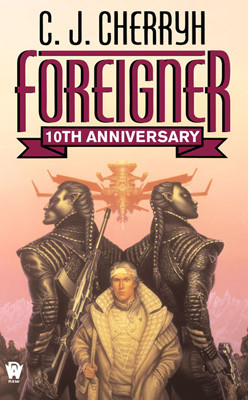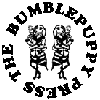Foreigner, by C.J. Cherryh
Science fiction as if written by John le Carré

C.J. Cherry's Foreigner starts with two quick fake-outs, in the form of "books". Books I and II are roughly 25 pages apiece, while Book III occupies 300 or so pages.
Book I is pure space opera. A faster-than-light starship pops out of hyperspace way off-course, so far that the crew can't even figure out where they are. All they are sure of is that they are too close for comfort to a dangerously active binary star system. The "book" ends with a pilot's relief that they have escaped the deadly system to one with a yellow star at its heart.
Book II is a planetary first contact story, told in alternating chapters from alien and indigenous points of view — human and atevi. The indigenes are humanoid, but built to a larger scale than human beings, and part of a world-girdling civilization that is nevertheless only at the dawn of an industrial age.
Quoting Wikipedia: "On the surface the humans encounter the atevi, a race of ebon-skinned humanoids, for whom math is as intrinsic as breathing. Atevi possess no directly corresponding concept of liking or loving another person, but instead place utmost importance on a concept called man’chi, most directly analogous to loyalty. Man'chi is not merely a cultural construct, but is an intrinsic drive, a natural instinct to follow a leader, and is therefore a difference between the two races that cannot be bridged."
Despite the physical and technological similarities, it gradually becomes clear that the atevi are not humans in muscular, black, 2.5 metre bodies. They are alien, and much of the book — possibly just a little too much of it — is spent hammering home that point.
Roughly 200 (local? I think so) years after a schism between the crew of the Phoenix and its passengers — colonists who had been intended to build and staff a major space station as part of a Terran empire's expansion — the damaged starship left in the belief that the colonists would dutifully maintain the station in orbit around the world of the atevi. Plans change and, the colonists abandon the station, using primitive parachute technology (think of the crew-capsules returning from the Moon) to get to the ground.
When Foreigner really gets going, the humans and atevi have — after an all-out war early on, one caused mostly by mutual incomprehension, not malice — established a complicated arrangement, whereby the human settlers have possession of the large island Mospheira and are permitted but a single ... diplomat, of sorts, the paidhi, who officially serves as an interpreter between human and atevi, but who, as the single point of contact between two cultures, also wields more power than most diplomats, let alone interpreters do in our world.
Not at all incidentally, despite their inability to return to space, the human colonists have a big technological advantage over the atevi, and no Prime Directive scruples about using it. Following a brutal war based on mutual incomprehension (not malice), The Mospheran humans work hard to guide the atevi society towards a high-tech future while avoiding human mistakes in the process: for instance, an emphasis on trains, not highways, and airplane technology unsuited to warfare.
The bulk of the novel takes place over a matter of weeks, as complicated internal atevi political struggles play out, leaving Cameron to spend most of the novel trying to understand what is happening — and hoping to stay alive, not an easy guarantee in a culture that includes assassination among its legal options.
To make matters worse, despite having spent years among the atevi, Cameron still has a tendency to infer human motivations for atevi actions, when the two species are both culturally and biologically very different animals. Mutual understanding is fraught at the best of times; nearly impossible when guns are being brandished or fired.
Both Cherryh's protagonist and her prose reminded me of none other than John le Carré's George Smiley novels.
Like Smiley, Cameron is a man married to his job, his avocation, who has (almost) no personal life and who is (or seems to be) ambivalent at best about that which he does possess. Also like Smiley, Cameron is no action hero (nor could he be; the atevi are much larger and a stronger than we are).
And as with le Carré's novels, Foreigner moves with a deliberate, slow but inexorable, acceleration towards its climax that might sometimes be confused with no motion at all. If you want a lot of jolts in your fiction, rather than a single climax, best look elsewhere for your pleasures; or else, take your time and get drawn into a singular creation.
I liked Foreigner quite a lot, and have already begun its sequel. (Note, however, that while the sequel, Invader starts only days after the first novel ends, Foreigner itself is a complete novel. It begs for a sequel but doesn't demand one. Cherryh does us the courtesy of providing a story with a satisfying beginning, middle, and end, which I hope will be the case as the series continues.
If I have any complaints, one is that Cameron himself sometimes seems, well, just a little thick. Too often I found myself wanting to give him a shake, as one does with horror movie character who insists on going after the lost cat all by themself. The second concerns the world-building. The humans of Mospheira number around four million and Cherryh doesn't (or I didn't notice if she did) provide a convincing explanation for that population level.
Those caveats aside, Foreigner is a fine example of why I read SF. Although there is an emphasis on personal relationships among a small group of leaders, Cherryh's world is is rich with factions, classes, and history. If the atevi political system at times feels a bit like those too often found in too many SF novels whose alien and/or far-future human civilizations are (really simplified) riffs on medieval Europe's kingdoms (I'm looking at you John Scalzi! And you, Ann Leckie!), as we read on we find more complexity, not less.
So too with Cherryh's efforts to limn the psychology of a species whose emotional life is simply different from anything found in Terran mammals. I was wasn't always convinced by Cameron's perceptions of the atevi (and, presumably, by what the author herself wanted us to understand), but I was never less than intrigued.
I am snobbishly leery of open-ended novel series, but Cherryh has hooked me with Foreigner and, with cautious optimism, I will read on.

Add new comment